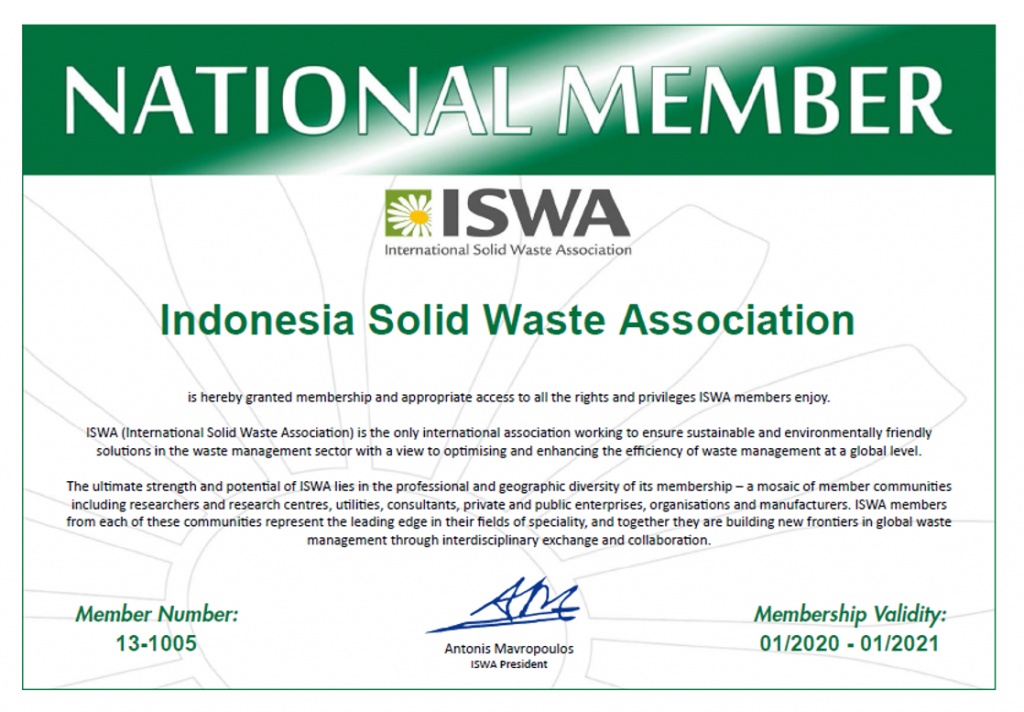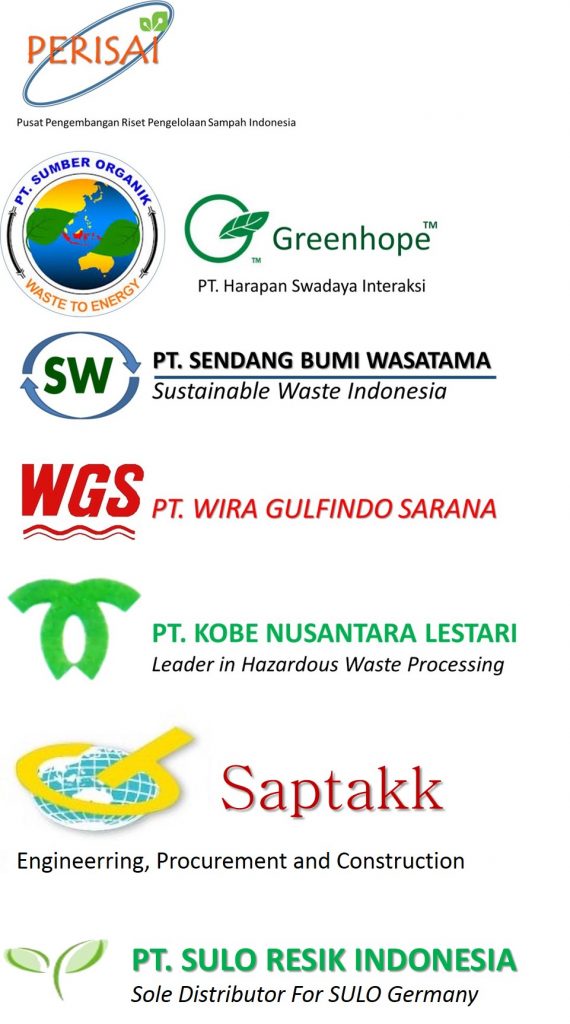 SRI BEBASSARI: The Green Deeds of Garbage Queen
SRI BEBASSARI: The Green Deeds of Garbage Queen
Thirty-one years of wrestling with the problem of garbage has earned her the title of the Garbage Queen. She has been able to open the minds of many parties that garbage is a serious problem and must be handled professionally.
By Siska Nurifah
HEAPS of sorted out garbage appeared to mount. But interestingly, the final disposal site (landfill/TPA) located in the Subdistrict Office of Cempaka Putih, Central Jakarta, was actually far from being a stench. The place looked neat and gave out an impression of being professionally styled. A few workers could be seen separating organic garbage from nonorganic waste pieces. In one corner of this landfill a lady with a headscarf could be seen organising the workers, and occasionally helped sort out the garbage in a pile.

She is Sri Bebassari. The 62-year-old woman is the originator of the formation of the TPA as a compost processing place. The various concepts of garbage processing generated by Sri not only have invited attention from within Indonesia, but also other countries have got the call. At least 10 countries have successively sent envoys to visit the TPA managed by Sri to study the various concepts and strategies for garbage management.
“With my concept, we can reduce 20 – 50 percent of the garbage that goes to the TPA. Even the compost can be sold, “said Sri to Media Indonesia while [the latter was] visiting the TPA under her management. The TPA receives 2 – 4 tonnes of garbage per day.
The TPA compost is just one of many contributions of Sri in addressing the garbage problem in Indonesia. Sri is also known as the founder of Indonesia Solid Waste Association (Inswa). Starting in 2002, she helped establish Indonesia Waste Forum (IWF). During the development of her works, Sri felt the need for a network that serves as a communication forum with respect to garbage.
The idea came when Sri participated in an International Solid Waste Association conference in Malaysia, with 50 countries sending participants. From there, Sri decided to establish Inswa in Indonesia. A year after that, precisely on 28 October, 2003, Inswa was established and has since become an independent and un-tied forum for the parties concerned with the management of garbage.
Through that organisation she has tried to encourage and assess the environmental accountability programmes of various companies. This independent organisation thus issues the most credible Green Label certificate in Indonesia. The assessment is done professionally based on the standards of the Agency for Development and Application of Technologies (BPPT), Central Laboratory of Polymer Technology, laboratories, and biotechnology development, including field assessments.
“Laboratory tests are very important, along with their own assessment standards. The assessment of the community is included as a control system. Today, there are many companies claiming themselves to be green; it is our duty to protect the society,” she explained.
Because the institution she has founded holds strict environmental principles, it is not surprising that until now only one Green Label certificate has been issued to a company that succeeded in creating a quick degradable plastic material made of cassava.
Law on Waste
Government and community awareness of waste management, Sri recognised, is still not sufficient. She cited the case of Bantar Gebang in 2008. At that time, she and other community organisations encouraged the government to establish professional waste management operators from the private sector.
This is in view of the thousands of tonnes of garbage that is neglected in Bantar Gebang TPA, as the government could not deal with it and it has become a social issue. “This issue has been considered trivial, but waste is a serious problem and could be a big threat if not handled properly,” she said.
Sri’s attention to garbage does not stop there. Besides taking care of garbage on the field, Sri does not forget other activities that are not less important. Environmental activists would surely know that Sri is an important figure behind the establishment of the Law on Waste Management.
Since 2000, she had continued to fight to propose the waste legislation. She argued that the law on waste was so urgently needed, as many countries had had such a law for a long time. For example, Japan had a waste law since 100 years ago. The result is that the country’s environmental pollution caused by waste is very low.
To ensure enactment of the waste law was not easy. Sri remembers, after twice a change of ministers, the Parliament still had not passed the law on waste. But she could breathe easier after the government and parliament enacted the Law on Waste Management No. 18/2008.
The most important point in the Act, according to Sri, is in Article 15, which mentions that each producer must be responsible for their products and packaging. “That is already right. Just imagine, for instant noodle packaging alone there are 15 billion pieces per year. Whose responsibility are these?” said Sri.
Sri acknowledged that eliminating the use of plastic on the completeness of consumption is impossible. For that, according to her, the solution is to encourage people to use plastic wisely.
Rare
Sri’s seriousness to engage in the world of garbage has been pursued since she was studying at Bandung Institute of Technology (ITB) in 1979. For her, wrestling with the problems of garbage brings about a certain satisfaction. As an academic and researcher, for her, waste issues represent a rare job in the world. “In Indonesia, the number of people taking this profession can be counted on the fingers. I really enjoy this job, like a hobby that has become a job. “
Sri is interested in the world of waste management because she thinks garbage is a multi-dimensional issue, involving technological, legal, institutional, social, as well as cultural aspects. It is not excessive that, after retiring from the BPPT in 2005, her work has actually been increasing. In addition to leading Inswa, Sri had a chance to take several other positions, such as becoming an adviser of the World Bank, Executive Director of Dana Mitra Lingkungan Foundation and Perisai Foundation in 2008, which has become a centre of waste development research in Indonesia.
Currently, she is entrusted by the Provincial Government of DKI Jakarta to be a member of technical advisory team and a resource person for the Master Plan of Waste management in DKI Jakarta, including becoming one of the authors of the National Waste Processing Strategy, which according to plan, will involve 23 ministries.
“Being a garbage researcher is an interesting work because one can get to know people from a variety of backgrounds, ranging from garbage collectors, cart operators, ministers, as well as the President,” she said. Sri recalled the chatter of others who questioned her interest in the matter of garbage.
“Back then a lot of people laughed at me, saying that is was schooled up high just for taking care of garbage. But I am thankful God has given me rare knowledge and I am happy I have been able to practice this science,” said the mother of two children. (M-1) siska@mediaindonesia.com
Biodata: Sri Bebassari
| Place, date of birth | : New York, 28 June, 1949 |
| Husband | : Ridjali Hadi |
| Hobbies | : Maintaining ornamental plants |
Education:
- Environmental Science (S-2/ Masters Degree), University of Indonesia (1996)
- Bachelor of Environmental Engineering, Bandung Institute of Technology (ITB), Department of Waste (1979).
Experience:
- Chief Executive of Inswa (presently)
- Executive Director, Dana Mitra Lingkungan Foundation (2005 – 2007) and Perisai Foundation (2008).
- The World Bank’s Advisor for Project Management Program, Waste Environmental Studies in West Java (2002 – 2006).
- Researcher of BPPT Waste Processing System (1980 – 2005).
Achievements and Awards:
- Gift of Women’s Empowerment at the University of Diponegoro Anniversary, 2011
- Satya Lencana Pembangunan [a state award for development achievements], 1999
03 November 2011
Source : Media Indonesia




